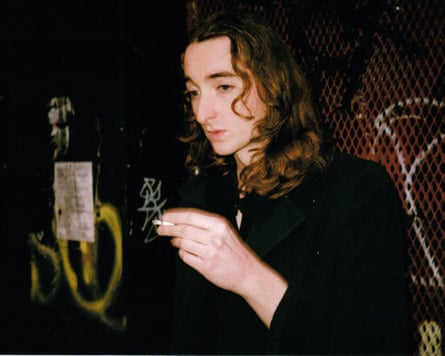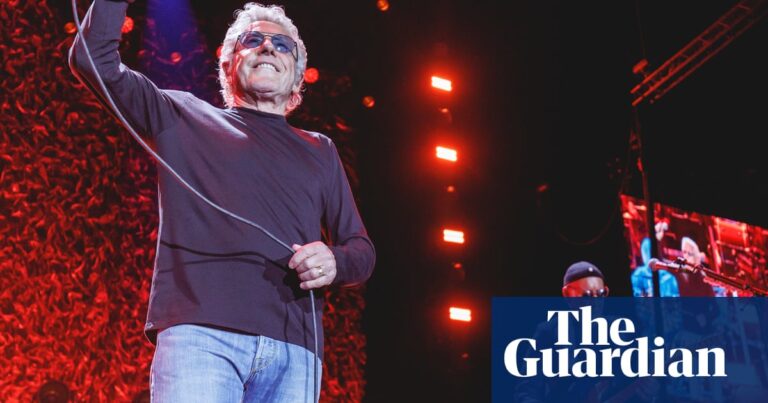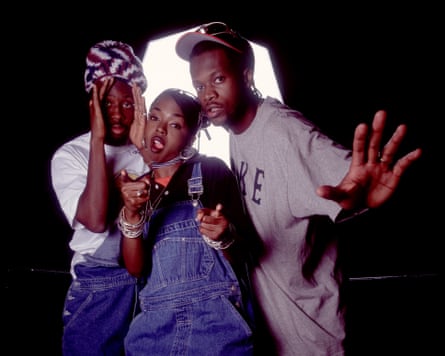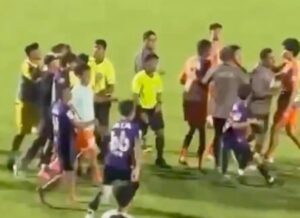The exhausted couple speaking over video from Los Angeles do not look like typical Oscar nominees. The tiredness etched on their faces is not from late nights partying or long days networking. It looks more like the weight of the world on their shoulders.
Anya Stasenko and Slava Leontyev are ceramics artists from the frontline Ukrainian city of Kharkiv. They have been married for decades and work together, making beautifully intricate painted porcelain beasts no bigger than your fist. When Russian troops invaded in 2022, rather than fleeing, the couple stayed in Kharkiv. Leontyev was a weapons instructor in the Ukrainian special forces, a weapons instructor who trained civilian volunteers. Then he picked up a camera and shot a documentary, Porcelain War. When the film premiered at Sundance in January 2024, the couple flew to the US, expecting to stay for a month.
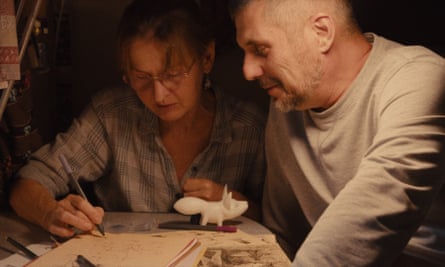
Then, to everyone’s surprise, Porcelain War won the festival’s top documentary prize. The couple have spent the past year in the US raising awareness for Ukraine. “We never planned to be here such a long time and we really need to get back as soon possible,” says Leontyev. They are based in Denver, but spend most of their time travelling with the film.
Do they ever feel a sense of guilt about being away from Ukraine so long? Leontyev shakes his head. “I never felt guilty, but I really miss people.” He talks about his unease when he started making the documentary while still serving. “When I picked up my camera, someone had to pick up a rifle in my place, literally. I cannot explain. I felt … not guilty, but something was wrong.”
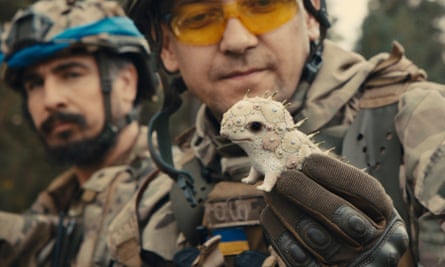
One day, Leontyev asked his unit commander for her honest opinion. “She said to me: ‘Your camera is a powerful weapon. More impactful than a rifle.’ It was only possible to make this movie because my unit completely supported us.” So far, the unit has had no fatalities. “It is a miracle,” he says.
We are talking without an interpreter. Last January, Stasenko and Leontyev arrived in the US unable to speak English. In a year, they have gone from zero to conversational. Leontyev is apologetic. “Our English is not so perfect,” he grins. “The grammar is absent!”
At this point, a little scrap of fur pokes its head up from his wife’s lap. It’s Frodo, the couple’s terrier, another star of the film. Frodo is barking at an aeroplane. “He thinks every aeroplane is a military aeroplane. He chases them away,” says Leontyev, looking at his wife. They smile at each other.
Stasenko and Leontyev have known each other since childhood. There is a photograph in Porcelain War of Stasenko pushing her future husband down the street in an old-fashioned pram (she is a few years older than him). They got together at art school in the 1980s in what was still Soviet Ukraine. In 1991, they were students when the Soviet Union collapsed. “It was interesting – and a hungry time,” says Leontyev.
“It’s normal for students to be hungry!” his wife points out. She wonders whether living through that moment prepared them for the war. “It was a beautiful time. It did not look like the war. But our generation, we have this experience of broken rules all around. We understand that all around may fly away in a moment.”
They eventually settled in Crimea, close to their friend Andrey Stefanov, a painter who is the cinematographer on Porcelain War. Then, in 2014, Russia invaded Crimea and they returned to Kharkiv. At this point, Leontyev started military training. “We knew,” he says. “Since the annexation of Crimea, we knew what kind of war would come to us.”
The couple fill their film with the beauty of Ukraine’s landscape. We also watch Stasenko paint – an act of resistance in the face of an aggressor aiming to obliterate a nation’s identity. In his voiceover, Leontyev compares porcelain to Ukraine: “Easy to break, impossible to destroy.”
Porcelain War takes us to the Bakhmut frontline in footage shot by the civilian soldiers in Leontyev’s unit, using bodycams and drones shipped from the US with medical supplies by a Ukrainian hairdresser in New Jersey. The drones track bombs falling on Russian targets. They are operated by people who once had regular jobs, but now look death in the face every day. There is an IT analyst, a furniture salesman, a dairy farmer. Watching it, you can’t help but wonder: could I do that? Do I have what it takes?
Leontyev says the message is about resistance – ordinary people defending democracy. It shows the best of Ukrainians, he says. “In dark times, kind people shine. All these people joined as volunteers. They are not only defending their families; they came because they felt responsibility in the face of history. This battle is between totalitarianism and democracy. It’s not the frontline between Ukraine and Russia. It’s the frontline of the whole world.”
Porcelain War has been nominated for best documentary at the Oscars; the couple’s stay in the US has been prolonged once again. A win would make the world their audience, up there on stage to accept the award, wouldn’t it? They nod. But Leontyev is modest about the achievement. “I never thought we’d be nominated. I don’t feel like it’s mine. Behind the film is the bravery of every Ukrainian soldier and the resilience of every Ukrainian civilian. It’s the nomination of every Ukrainian.”
Source: theguardian.com









